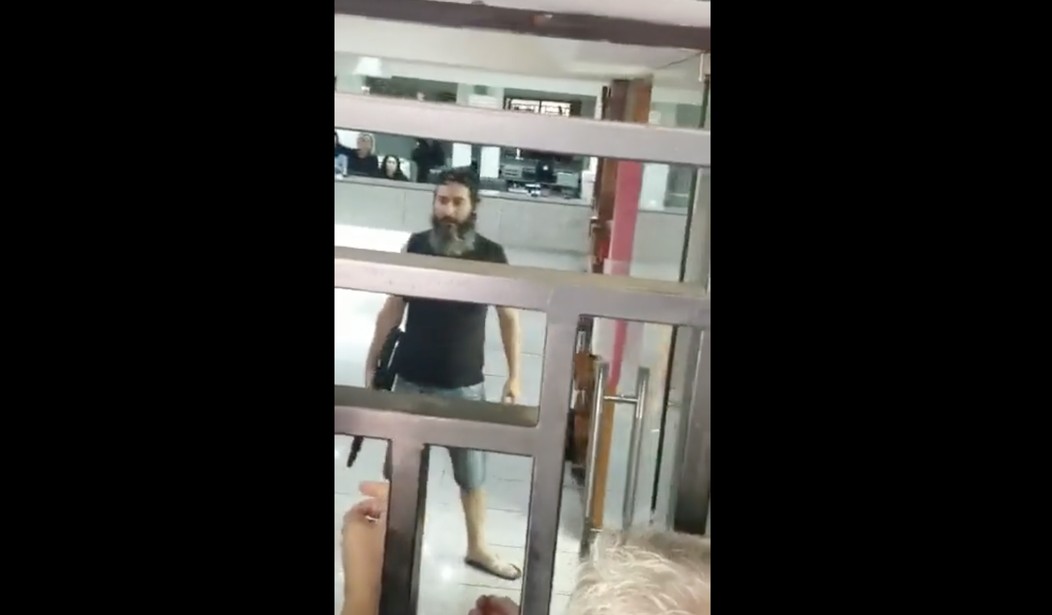A Lebanese man entered a bank in Beirut armed with a can of gasoline and what appeared to be a shotgun, demanding access to his $210,000 in savings. A crippling economic crisis has forced the government to limit cash withdrawals from banks to a few thousand dollars to prevent bank runs and the suspect, Bassam al-Sheikh Hussein, needed money to pay his father’s medical bills.
Hussein took several hostages, and as word spread of his predicament, a large crowd gathered outside to cheer him on.
BREAKING: Video of hostage situation in #Lebanon at a major bank in downtown Beirut. An armed man is holding bank staff until they release his deposits, he says are $210,000: pic.twitter.com/xG9A9H3Yl8
— Joyce Karam (@Joyce_Karam) August 11, 2022
“Give him his money, give him his money,” the crowd shouted.
Lebanon is experiencing the most extraordinary economic crisis in modern times, with nearly half the country facing starvation. The government is run by a small group of kleptocrats and divided by religion with Christians, Sunni and Shia Muslims, and Druze families dividing power and wealth.
Among those who gathered outside the bank to show their solidarity was Sandy Chamoun, a 35-year-old artist.
“Every one of us has been robbed from different directions, from banks and from the government,” she said. “I thought we should be outside, supporting him, so he doesn’t give up, so he doesn’t feel alone or besieged.”
“This is called self-defense,” Chamoun added. “It’s been three years that they’ve been depriving us from our money, and he’s telling them ‘my father is sick.’ What more can they want?”
While elections in May brought in some fresh faces to fill government elected offices, the permanent ruling class still controls the institutions — financial, religious, and cultural. Even with catastrophe facing them square in the face, Lebanon’s elites refused to reform.
Lebanon’s central bank governor, Riad Salameh, is facing investigation, charged in March with illicit enrichment and money laundering. Last month, the central bank was raided by security personnel. But with judicial authorities frequently on strike, corruption investigations tend to drag on without resolution.
Dina Abou Zour, a lawyer with the Depositors’ Union, predicted people would continue resorting to desperate measures if the banks and politicians failed to address their demands.
“We are truly trapped. We are the hostages, not the [bank] employees, or as it is being portrayed, the banks,” she said. “We are the victims; we are not the criminals.”
In the 1970s, Lebanon was considered one of the few Middle Eastern success stories. Beirut was known as “The Paris of the Middle East.” Then came the civil war and the bloody reign of the terrorist group Hezbollah. Hezbollah is still there but has been discredited in recent years, having become the object of mass protests. It hardly matters. They have guns and are a more powerful military force than the army.
The terrorists are as corrupt as anyone in the country, which leaves the nearly 7 million citizens with no food, no money, no power, and no way out.
Mr. Hussein finally surrendered after a seven-hour standoff. As he was being marched off to jail, some of the bystanders clapped and others cheered. You have to wonder how many Lebanese citizens in the crowd would love to do something similar.










Join the conversation as a VIP Member